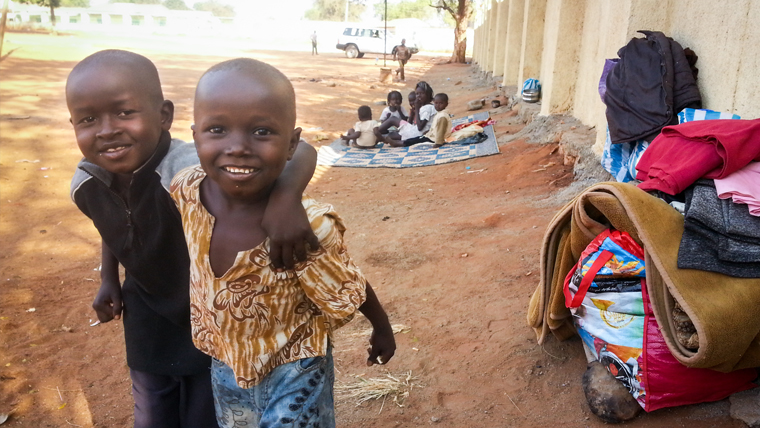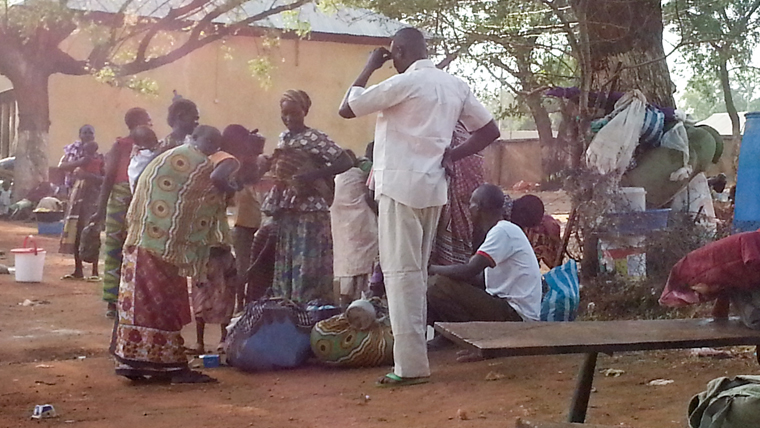New Violence Revives Bitter Memories of South Sudan

By Abraham Nhial
On the night of 15th December 2013 fighting broke out in South Sudan capital, Juba, between government troops and soldiers loyal to former Vice President Dr. Riek Machar. I told my wife that night, “We are at war again,” amidst intense gunfire.
Our house was close to the barracks, so we were caught between the fighting armies. We spent the whole night praying to God to spare our lives. The government troops managed to flush out the opposition force from Juba after two days of intense fighting. However, similar fighting erupted in the states of Jonglei, Unity and Upper Nile.
Since then fighting has been spreading across the country with more Nuer soldiers defecting to the opposition force. In the last few days, we have heard of targeted killing on ethnic grounds in Bor, Juba, and Bentiu. Nearly 200,000 people have already been displaced and at least 1000 have been killed in a three-week conflict.
Still hiding, but still hope
As I write this my father, mother and children are still hiding in the bush in Jonglei state. I am deeply worried about their security and safety. They are going to run out of food soon and God knows what they will be eating.
I hope ongoing talks between government and the opposition force in Ethiopia will help leaders to settle their political differences and prevent the country from plunging into anarchy.
It is common knowledge that tribal identity is stronger than national identify in South Sudan. Any political wrangling is seen through a tribal lens, so when the Sudan People’s Liberation Army (SPLA) disintegrated along tribal lines and fought one another after fallout between Dr. Machar and President Kiir, it was hardly a surprise.
I thought our leaders would be above ethnicity, but unfortunately, they are not different from the common citizens who are loyal to their tribes.
The more I think of the innocent lives that been lost in this senseless conflict, the more I think that South Sudan is at war again. I hate to see this country returning to war. The last war which ended in 2005 has deprived many of childhood happiness and innocence.
Real threat of exile
I was born in May 1983, about a week before war erupted in Sudan between the SPLA and the Government of Sudan. In order to avoid the horrors of war, my family sought refuge in Ethiopia, Kenya and Uganda during the two decades of war, which ended with the signing of Comprehensive Peace Agreement (CPA) in 2005 between the Government of Sudan and SPLM. The CPA resulted in the independence of South Sudan.
As a child growing up in refugee camps, my years were characterized by misery, hunger, loneliness, disease and death of close relatives and friends.
In 1991, when we returned to Bor from exile in Ethiopia, we were confronted almost at every step of the way by stench of rotting human bodies. These were innocent civilians killed by forces loyal to Dr. Riek who is now leading the current opposition forces against the SPLM-led government for the second time.
Most of these people were killed in cold blood while others died of diseases and hunger because there was no way for aid agencies to access them deep in the bush and villages.
A future in jeopardy
If South Sudan fails to reach a peace agreement and end violence, the future of South Sudan’s children will be in jeopardy.
As a father, I need to see my children grow, get an education and parental care that I offer in a peaceful environment. However, I will not be in position to meet all the basic family needs if I became a refugee again because of war.
In the past few days, I have been contemplating whether to remain within South Sudan or flee before the country plungers into chaos. However, I chose to stay because of World Vision and some of my relatives who still in hiding in the bush, whose security and safety remain uncertain.
Most of the displaced populations are desperately in need of assistance and they are counting on the international community to come to their rescue at their hours of need. However, it might also be difficult to offer assistance with the fighting still ongoing in the country.
I pray to God to give our leaders some wisdom to understand that war is not a solution to any conflict and peaceful dialogue is the way forward.
World Vision has been working in Sudan for more than 40 years and is extremely concerned for the well-being of children caught up in the conflict. World Visioni South Sudan has been responding since the outbreak of violence to help with the most immediate needs of the conflict-affected population. For more information, please visit our South Sudan update page and consider making a donation.
